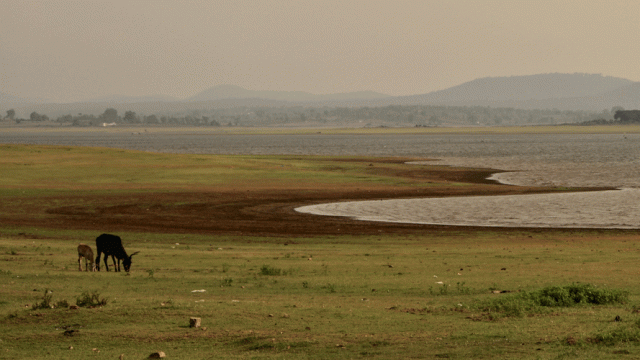Untold years ago, the legend goes, an ascetic named Dhoramnath stood on a hill and undertook severe
The science is no less romantic. Every year, the monsoon tides from the Arabian Sea slosh over the region between the Gulf of Kutch and the mouth of the Indus. As the marsh dries up, what is left behind is a featureless expanse of white salt. Roughly 7500 square km of it. That’s the White Rann for you.

Vast, inhospitable, harsh… there would have been no easy way for the common traveller to experience this magnificence, but Gujarat Tourism makes it possible with Rann Utsav. A winter festival held annually between the months of November and March, this festival has grown exponentially since it started as a 3-day festival in 2006. Today, the arrangements include a ‘Tent City’ near the village of Dhordho–which, organisers say, is the biggest tent accommodation in India.

There are 380 tents of various types ranging from basic economy to the plush ‘Durbari’ accommodation; there are large dining halls, live craft demonstration stalls, shops… in fact, this is a massive enterprise. For the restless, there are many activities, including ATV rides, paramotoring and what not. Many day trips are possible: to the seaside town of Mandvi, to Kalo Dungro, the highest point in Kutch, the crafts village of Gandhi Nu Gaam as well as a tour of Bhuj.

At first, I found the ‘city’ bewildering. Self-absorbed with guest lists, check-ins, check-outs, buses arriving, buggies plying, misplaced baggage, purposeful chatter on walkie-talkies, due dispensing of meal tokens… it was a teeming place with a million wheels in action. Full of conviction in its minutiae, it seemed to dominate – and confuse – the senses. But no sooner had we driven out into the salt marsh than the landscape took centerstage. We reached close to sunset. The sun sank beneath the skyline and the crowds of tourists quickly dispersed, assuming that the show was over.

It wasn’t. As day gave way to night, there was something unspeakably beautiful in that marsh. Underneath my feet, the salt was pockmarked by footprints of those before me, scars of brown soil showing up here and there. I walked on deeper into the Rann, to purer and purer white, till I came to an almost virgin sweep. Miles of white salt rolled out in every direction. The chill set in. As the light altered, so did the colour of the land. Seldom have I had the opportunity to look at a horizon so uncluttered. A point came when the greys met and I couldn’t tell where the earth ended and the sky began, and an endless vastness stretched alive within me.

Rann Utsav’s Tent City is located 85 km from Bhuj. See rannutsav.in for tariffs and packages.
Great Rann of Kutch
Rann Utsav
Tent City





